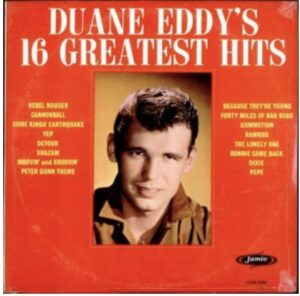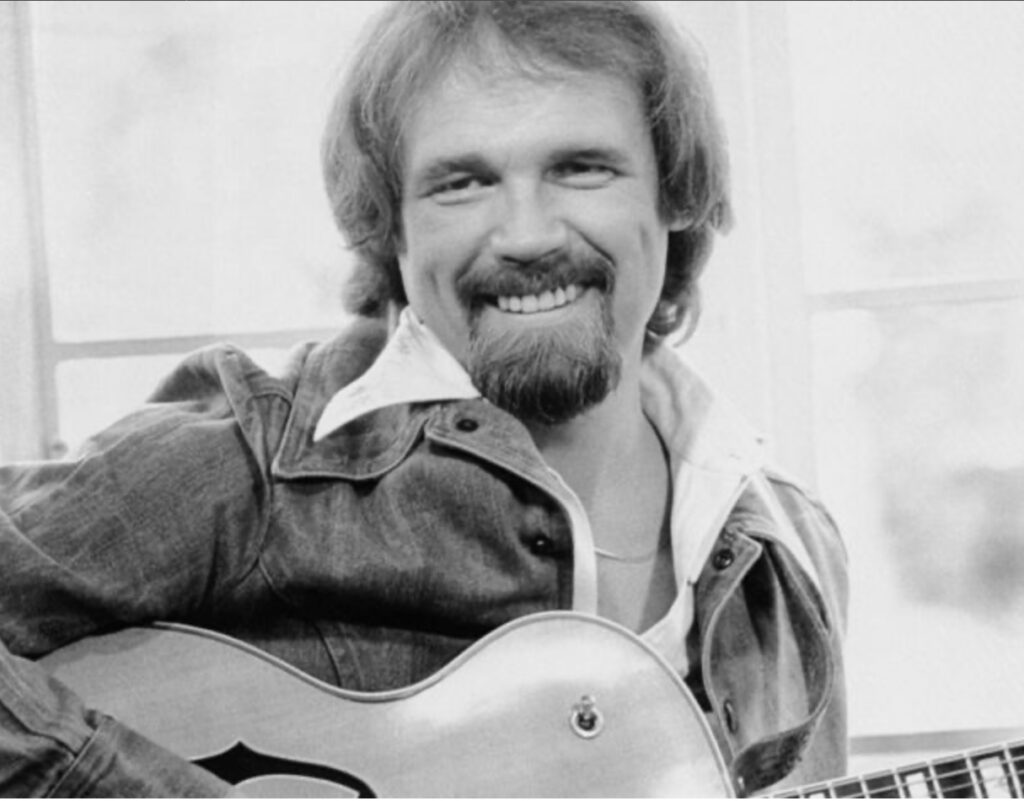By Ray Bennett
In the 1950s, Duane Eddy, who died on April 30 aged 86, was one of the American rock stars most popular in the United Kingdom. With his band the Rebels, his hit singles ‘Rebel Rouser’, ‘Peter Gunn’, ‘Ramrod’, ‘Because They’re Young’ and ‘Forty Miles of Bad Road’ made him red-hot with teenagers along with hits of Elvis Presley, Bill Haley, Little Richard, Buddy Holly and the Everly Brothers.
Little more than a decade later, it was a different story.
In the early Seventies, I was working for The Windsor Star newspaper in the southwestern Ontario city across the river from Detroit. One of the top venues in the area, attracting big audiences on both sides of the border, was called the Elmwood Casino. Top names from Frank Sinatra to Shirley Bassey to Tom Jones played there to sell-out crowds.
When crooner Al Martino (who went on to play Johnny Fontane in the ‘Godfather’ movies) appeared at the Elmwood Casino in August 1970, our regular entertainment guy was away and I was assigned to cover the gig. Martino was familiar to me as his recording of ‘Here In My Heart’ was the first ever number one hit on the U.K. singles chart in 1952 but I wasn’t interested in talking to him, not once I learned the name of the guitarist in his band. Duane Eddy had no solo in the show and no limelight. He was there as an expert and professional musician.
Martino’s people were upset that I didn’t want to interview him but the chance to speak to one of my early musical heroes was too great to pass up and Eddy agreed to talk to me.
At 32, he looked very different – at least in appearance – from the man who helped lead pop music into a whole new era back in the Fifties. A quiet, soft-spoken man with longer hair and a beard, he gave the appearance of being a little weary, perhaps a trifle ravaged by the cruel business he was in.
 There was no bitterness, not the slightest suggestion of being defeated or down. The man was a fountain of quiet energy and enthusiasm that he revealed gingerly as if he had been let down by people in the past. His smile was warm and genuine.
There was no bitterness, not the slightest suggestion of being defeated or down. The man was a fountain of quiet energy and enthusiasm that he revealed gingerly as if he had been let down by people in the past. His smile was warm and genuine.
Only when I brought it up did he talk about the glory times, the fame and subsequent decline. ‘They were good days’, he agreed. ‘It really was a time of revolution in pop music. For the first time, it began to be a youthful thing. Before Haley and Presley and those people came along there was the Top 10 but soon it became the Top 100.
‘It would be fun to think of a group of those guys playing together like the “supergroups” – it would be difficult, though – Jerry Lee Lewis, Little Richard, Fats Domino, Chuck Berry. All good people. That was one of the aspects of pop music in those days, the guys in it really were nice guys. It was all new to them and many of them got taken for a ride. Now, it seams to have gone the other way with some of the rock people – they look after themselves.’
Eddy had little tolerance for the myths of show business. He did not react with indignation, though, just a knowing smile. ‘There are pressures in the business but you find the people who cannot handle it are those who aren’t really stable. The ones who do all the complaining about being harassed by fans and other things are the first ones to complain if it all disappears. But don’t believe that story about helping people on the way up because they’ll help you on the way down, either. When you’re on the way down, you never see those people.’
The Rebels’ last big hit had been in 1964. ‘The guys reached a stage where it was tiresome doing endless one-nighters, constant touring,’ Eddy told me. ‘They wanted to get married and stay home. I got married too and felt the same way.’
His marriage ended, though, and he went to Europe. ‘I’d still been recording and doing session work, he said. ‘I lived in London and formed a group called the Quotations – mostly guys from the old Merseybeats rock group. We toured all over Europe.’
The guys from the Rebels – pianist Larry Knechtel, sax and flautist Jim Horn and guitarist Al Casey – had all become top session men in Los Angeles and Eddy said, ‘When I returned from Europe, I was doing recording work too. In March this year, I was working with Al Martino amdnd he asked me if I’d like to play for him in Las Vegas. It seemed like a good idea and we’ve worked together several times since.’
Eddy said he wanted to get back into recording. ‘I’ve just got a single out – a soft, gentle version of George Harrison’s “Something”. I don’t think I’ll get into the heavy rock sounds, though. In the fall, I’m going to get a group together and tour the Orient and see what comes out of that.’
As we know, a great deal was to come after that over the years as he made many more albums, played major gigs, worked with the biggest names in rock and entered the rock’n’roll and musicians’ halls of fame.

